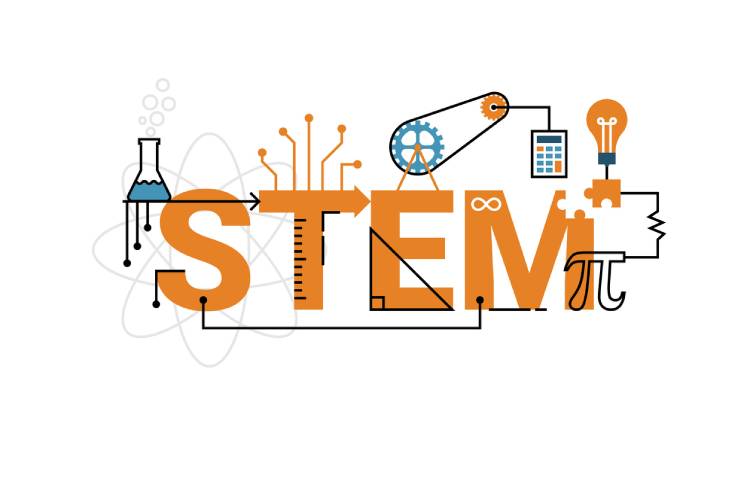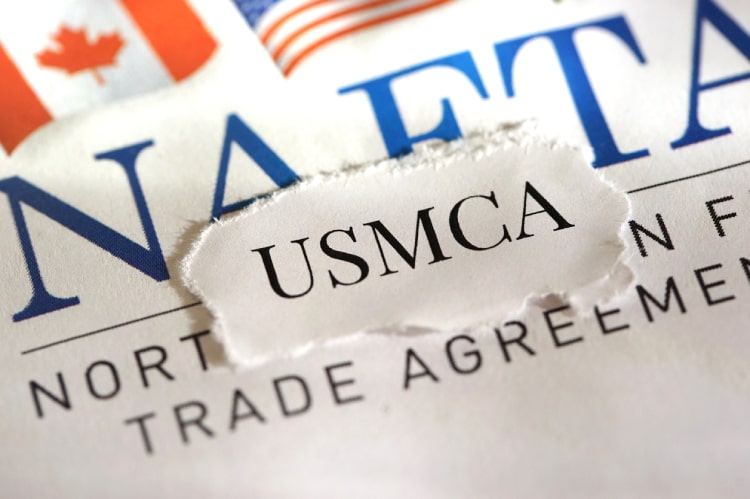Navigating U.S. immigration can be daunting, especially when understanding the nuances of specific qualifications. Among these, the prominence of advanced degrees in Science, Technology, Engineering, and Mathematics (STEM) has come to the limelight. With STEM fields driving modern innovations and shaping the future, how does the United States Citizenship and Immigration Services (USCIS) perceive and value these credentials? In this blog post, we’ll look into the specific evidentiary considerations USCIS assigns to STEM degree holders, the criteria they must meet, and how these qualifications potentially influence pivotal immigration decisions.
National Interest Waiver (NIW): What is it?
A National Interest Waiver (NIW) is a U.S. immigration provision that allows certain foreign nationals to apply for a green card (permanent residency) without needing employer sponsorship or a Labor Certification if they can demonstrate that their specific skills and proposed employment in the U.S. would significantly benefit the nation. If granting individual residency is deemed in the “national interest,” then specific standard procedures can be bypassed. Typically sought by experts in fields of substantial significance, such as STEM, an NIW can be a crucial pathway for talented professionals to contribute their expertise in areas that directly bolster the U.S.’s economic, cultural, educational, or technological standing.
Section 1: Overview of the Three Prongs
The National Interest Waiver (NIW) of Job Offer is a vital tool within U.S. immigration policy that facilitates the entry and residence of professionals whose work is deemed exceptional to the nation. The waiver’s evaluation operates on a three-pronged framework. Here’s a deeper look at each of these prongs:
- The Merit of the Proposed Endeavor:
- This first prong focuses on the inherent value and potential impact of the activity or project the applicant intends to pursue in the U.S.
- To satisfy these criteria, the proposed endeavor must be shown to have significant potential in serving U.S. interests, whether those interests are economic, cultural, educational, or otherwise. For instance, a groundbreaking research project in renewable energy would have inherent merit, given its potential to enhance the U.S.’s energy sustainability and reduce its carbon footprint.
- The Person’s Capability to Forward that Endeavor:
- Merit alone isn’t sufficient. This prong evaluates the individual’s qualifications, ensuring they are uniquely suited or exceptionally capable of advancing the proposed project or activity.
- Factors that might be assessed under this criterion include the applicant’s education, experience, past successes, or any unique skills they possess. Using the aforementioned example, if the individual holds advanced degrees in sustainable energy and has a track record of innovations in the field, they would demonstrate a solid capability to forward the endeavor in renewable energy research.
- The Overall Benefit to the U.S.:
- Even if the endeavor is respected and the applicant is capable, the waiver will be granted only if it is clear that the U.S. gains significantly from the individual’s contributions.
- This prong demands a more holistic view, comparing the benefits of allowing the individual to bypass traditional immigration protocols against the benefits of adhering to them. Essentially, the net positive impact of the individual’s work should outweigh the reasons for the conventional job offer and labor certification process. Following our example, if renewable energy research has the potential to revolutionize the energy sector, create numerous jobs, and position the U.S. as a global leader, then its benefit to the U.S. would be evident.
All three prongs must be satisfied for an applicant to obtain the NIW successfully. Each prong operates as a gatekeeper, ensuring that only those who genuinely align with the nation’s best interests and can make significant contributions are granted the waiver.
Section 2: Importance for STEM Professionals
STEM (Science, Technology, Engineering, and Mathematics) professionals represent a special cohort within the tapestry of talents who seek the National Interest Waiver (NIW) in the U.S. These individuals, often at the forefront of technological breakthroughs and scientific discoveries, play pivotal roles in shaping the future, addressing critical challenges, and ensuring that the U.S. maintains its competitive edge on the global stage.
Given the intrinsic importance of STEM to modern-day challenges and the economic and strategic position of the U.S., such professionals are often seen through a different lens in the context of the NIW. Their roles in advancing research, developing novel technologies, and pushing the boundaries of human knowledge can directly correlate with broader national interests. Here’s a closer look at their unique position:
- Intrinsic Value of STEM Expertise:
- The rapid pace of technological advancements and the growing importance of science in addressing global challenges make STEM professionals invaluable. Their work often intersects with areas of strategic importance, such as artificial intelligence, renewable energy, biotechnology, and cybersecurity. As such, their contributions can be seen as having inherent merit in the context of the first prong of the NIW.
- Showcasing Qualifications:
- For a STEM professional seeking the NIW, it’s not enough to merely hold an advanced degree or have a history of research. They must demonstrate that their qualifications align with their proposed endeavors in the U.S. and that they have a proven track record or the potential to make meaningful contributions in their field. This is where accolades, publications, patents, or any other tangible metrics of their expertise come into play, showcasing their capability to push their respective fields forward, aligning with the second prong of the NIW.
- Connecting Expertise to National Interest:
- Beyond their qualifications, STEM professionals must also elucidate how their expertise aligns with the broader national interests of the U.S. This means illustrating how their work might bolster the U.S.’s global technological leadership, enhance economic competitiveness, address critical societal challenges, or contribute to national security. For instance, a cybersecurity professional might emphasize the increasing threats of cyber-attacks on critical infrastructure and how their work aims to fortify these systems, thereby directly serving the nation’s security and economic interests.
In essence, while STEM professionals undeniably have a firm footing given the current global landscape, the NIW demands that they make explicit the synergy between their expertise and the nation’s broader interests. They must paint a clear picture, connecting their unique capabilities to the tangible benefits the U.S. can gain by granting them the waiver.
Section 3: Role of Supporting Letters from Government Entities
Within the National Interest Waiver (NIW) framework, substantiating one’s claim to merit is critical. While the individual’s qualifications, achievements, and planned endeavors are central, third-party endorsements can substantially strengthen the application, especially from authoritative entities. When these endorsements come from governmental or quasi-governmental entities, they carry particular weight due to such bodies’ perceived impartiality and authority. Here’s an in-depth look at why these support letters are so impactful:
- Credibility and Authority:
- Letters from governmental entities, whether federal, state, or local, inherently come with a stamp of credibility. These are institutions tasked with safeguarding and promoting the broader interests of the nation or region. Their endorsement signals that the individual’s contributions align with these larger goals and have been assessed and recognized by those in authoritative positions.
- Highlighting Value:
- These letters do more than endorse; they often elucidate the specific value an individual brings. Whether it’s a researcher’s potential to make groundbreaking discoveries in a critical field, an engineer’s role in a nationally significant project, or an expert’s potential to enhance U.S. competitiveness in a particular domain, these letters delineate the exact ways in which the individual’s work is valuable to the country.
- Emphasizing Urgency:
- Beyond just value, governmental and quasi-governmental endorsements can highlight the urgency of the individual’s contributions. For instance, a letter from a federal agency might emphasize the time-sensitive nature of research in renewable energy, especially in the face of global climate change challenges. Such an endorsement validates the importance of the individual’s work and signals that any delay in facilitating their contribution might be detrimental to the nation’s interests.
- Relevance to Broader National Strategies:
- Governmental entities often align with more extensive national strategies in research, technology, healthcare, security, or economics. When they endorse an individual, it indirectly aligns the individual’s endeavors with these broader strategic objectives. This can be instrumental in showcasing how the person’s work isn’t just beneficial in isolation but part of a larger tapestry of national efforts.
- Neutral, Objective Evaluation:
- Unlike endorsements from private entities or colleagues, which might be perceived as biased, governmental and quasi-governmental letters are viewed as more objective. They are presumed to evaluate an individual’s merits without personal interests, focusing purely on the potential benefits to the nation or community.
In conclusion, while every piece of evidence and endorsement in the NIW application matters, support letters from governmental and quasi-governmental entities serve as powerful testimonials. They don’t just endorse; they provide context, align with larger objectives, and underscore the immediate and long-term significance of the individual’s contributions to the U.S.
Specific Evidentiary Considerations for STEM Degree Holders
The United States Citizenship and Immigration Services (USCIS) acknowledges the paramount significance of STEM (Science, Technology, Engineering, Mathematics) fields and the critical contributions of individuals possessing advanced STEM degrees, especially in focused, cutting-edge technologies and other areas vital to U.S. global competitiveness and national safety.
- Identifying Critical and Emerging Technologies: USCIS officers rely on various sources, including governmental and academic inputs and authoritative lists like those from the Executive Office of the President. These references aid in discerning crucial tech sectors. Additionally, endeavors to keep the U.S. at the forefront against competitors, adversaries, or R&D-intensive industries are instrumental to national competitiveness or security.
- Substantial Merit and National Importance: For a STEM pursuit to qualify, it must exhibit both substantial merit and national significance. Endeavors that further STEM technologies and research generally fit this mold. However, despite their value, standalone STEM classroom teachings don’t typically suggest a broader impact in STEM education and may not signify national importance.
- Education & Skillset: An individual’s educational background and proficiency determine their ability to enhance the endeavor. Advanced degrees, notably a Ph.D. in STEM tied to the proposed endeavor, are strong positives. Since doctoral and some master’s research is typically niche, officers should evaluate if the specific STEM subject aligns with the endeavor. Even theoretical subjects can be pivotal for national competitiveness or security. Relevant evidence beyond the degree includes letters from interested government agencies highlighting how a candidate is primed to drive the endeavor forward.
- Waiver Considerations: To decide on the waiver, the petitioner must prove that the benefits of the person’s entry into the U.S. surpass the advantages of having a job offer, i.e., labor certification. A compelling case is made when:
- The individual has an advanced STEM degree, especially a Ph.D.
- The work pertains to a critical STEM field vital for U.S. competitiveness.
- The individual is aptly positioned to progress in a nationally significant STEM venture.
The argument becomes even more compelling when the endeavor bolsters U.S. national security or economic competitiveness or when supported by relevant government agencies.
The Role of Interested Government Agencies or Quasi-Governmental Entities:
Letters from government or quasi-governmental entities can significantly bolster a petitioner’s case. For the first prong, such letters, especially detailing the agency’s expertise in the proposed venture, can underscore the national importance of a STEM project. Second, these letters can elucidate how equipped the individual is to progress the endeavor. For the waiver considerations, they can outline the urgency and detail the prospective benefits to the U.S., surpassing the need for a job offer. Securing a National Interest Waiver isn’t just about showcasing individual expertise. It’s about aligning one’s professional contributions with the broader national interests of the U.S. Each application is scrutinized case-by-case by USCIS, ensuring that only exceptional and beneficial individuals are granted this waiver.
Conclusion:
Navigating the intricate tapestry of U.S. immigration is no small feat, especially when STEM professionals seek pathways that acknowledge their profound influence on shaping our world’s future. As we have traversed the various aspects of the National Interest Waiver, one prevailing theme emerges: the symbiotic relationship between individual expertise and broader national interests. It’s not just about possessing an advanced degree or showcasing a groundbreaking research proposal. Success in securing an NIW hinges on a compelling narrative that seamlessly intertwines personal endeavors with the broader goals of U.S. economic, technological, and security advancements.
Subscribe to Our Resources Blog
Schedule a Consultation with an Immigration Lawyer
Additional Outside Resources
- Options for Noncitizen STEM Professionals to Work in the United States
- USCIS Policy Manual – Chapter 5 – Advanced Degree or Exceptional Ability
We Can Help!
You may have questions regarding U.S. immigration options under STEM and NIW. We invite you to contact our team at Richards and Jurusik for detailed guidance and assistance. We aim to provide the most accurate and up-to-date information to make your immigration process smoother and less stressful. The immigration lawyers at Richards and Jurusik have decades of experience helping people to work and live in the United States. Read some of our hundreds of 5-star client reviews! Contact us today to assess your legal situation.






